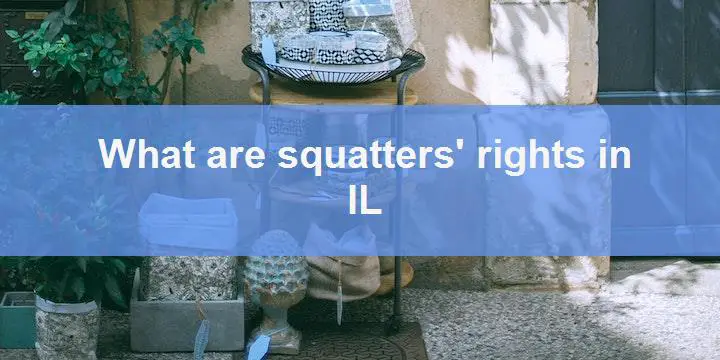Despite being the sixth smallest state in the US, Massachusetts has a variety of properties across its cities, rural towns, and suburbs. With more than 2.1 million residential and commercial properties statewide, it’s not uncommon for some of these properties to remain vacant for long periods. Over time, some individuals may enter these abandoned or unoccupied properties, establish residency, and claim “squatters’ rights.”. While views on squatter’s rights differ among people, it is a complex and often misunderstood topic. Therefore, in this article, we will dive deeper into what squatters’ rights are in Massachusetts, how they work, and what property owners should know about this issue.
Squatter’s rights in Massachusetts are based on a legal doctrine called adverse possession, which allows individuals to claim ownership of a property if they have continuously occupied and cared for it without the owner’s permission for a certain period of time. In Massachusetts, this period is 20 years. However, there are certain conditions that must be met, such as paying property taxes and treating the property as if it were their own. It is important to note that adverse possession is a legal concept that can be difficult and costly to prove in court, but knowing your legal rights and responsibilities as a property owner or a squatter can help avoid legal disputes and protect your interests.
What is the squatting/squatter?
Squatting is when someone occupies an abandoned or unused building, land or property without the permission of its owner. A squatter is a person who takes over such a property and claims it as their own by residing there, fixing it, and sometimes even paying taxes on it. Squatting often occurs in urban areas where there is a shortage of affordable housing and where properties may be left unoccupied for extended periods of time. Squatting is often seen as a form of direct action by those who believe in the right to housing and the need to resist the commodification of housing under capitalism. However, it is also a legal and ethical grey area since it involves occupying someone else’s property without their consent or legal permission.
What is an example of a squatter?
A squatter is someone who settles in an uninhabited or abandoned property without permission. For example, a person who occupies a vacant lot, an unoccupied building or an empty house without having legal authority to do so is considered a squatter. These individuals often use the space for shelter or living purposes, and they may even make modifications to the property to suit their needs. Squatters may be seen as a nuisance by property owners, as they are technically trespassing on private land. While some squatters may eventually be evicted, others manage to stay on the property for extended periods of time.
What is Adverse possession in Massachusetts?
Adverse possession is a process by which someone can acquire ownership of a piece of property through continuous use without permission of the legal owner. In Massachusetts, the legal elements of adverse possession include actual use of the property, open and notorious use of the property, use of the property in a manner that is exclusive to the legal owner, continuous use for a minimum of 20 years, and use of the property without permission from the legal owner. If these elements are satisfied, the person who has been using the property may file a claim for adverse possession and may be awarded ownership of the property. The process of adverse possession in Massachusetts can be complex, and it may be advisable to consult with an experienced real estate attorney for guidance.
Is it legal to squat in Massachusetts?
It is illegal to squat in Massachusetts as it is considered trespassing. Squatting is the act of occupying a property without the owner’s permission or legal right to do so. While “squatters’ rights” laws exist in some states, Massachusetts does not recognize this concept. Property owners in Massachusetts have certain legal protections that allow them to remove squatters from their property. Squatting is not only against the law but can also put individuals in danger as the property may not be up to code or have utilities turned off. It is recommended to seek legal means to obtain housing rather than resorting to squatting.
Can police remove squatters in Massachusetts?
The state of Massachusetts allows for the police to remove squatters from a property if the owner of the property files an eviction lawsuit against them. Squatters are individuals who occupy someone else’s property without permission, and under Massachusetts law, their actions are considered illegal. However, the police cannot remove squatters from a property without a court order, and it is the responsibility of the property owner to initiate the eviction process. It is important for property owners to act quickly to remove squatters from their property, as these individuals can often cause significant damage or issues for the property owner. Therefore, property owners in Massachusetts should seek legal advice and take action promptly when dealing with squatters.
How to evict squatter in Massachusetts?
If you are a property owner in Massachusetts and find that someone has taken up residence in your property without your permission, you may need to evict them. This is known as squatter’s rights, and it is illegal. To evict a squatter in Massachusetts, you will need to follow a specific legal process. First, serve a written notice on the squatter giving them a deadline to vacate the property. If the squatter does not leave by the deadline, you can file a complaint in court to initiate the eviction process. You will need to follow all the legal procedures and provide proof that you are the rightful owner of the property. The court will issue an eviction order, and you will have to hire a sheriff or constable to remove the squatter forcibly. The process of evicting squatters can be complicated, and it is essential to seek legal advice to protect your rights and ensure a successful outcome.
FAQ “What are Squatters Rights in Massachusetts?”
Q: What are squatter’s rights?
A: Squatter’s rights refer to the legal concept that allows a person who has been occupying a property without the owner’s permission to eventually gain ownership rights.
Q: What are the requirements for acquiring squatter’s rights in Massachusetts?
A: In Massachusetts, squatter’s rights can be acquired if the following conditions are met:
- The squatter has been occupying the property continuously for at least 20 years.
- The occupation has been open, notorious, and exclusive.
Q: Can a squatter be evicted in Massachusetts?
A: Yes, a squatter can be evicted in Massachusetts. However, the process can be complicated and lengthy since squatters have certain protections under the law.
Q: How can property owners protect themselves from squatters in Massachusetts?
A: Property owners can protect themselves from squatters in Massachusetts by regularly inspecting their properties and immediately taking legal action against any unauthorized occupants.
Q: What are the potential consequences of allowing someone to squat on your property in Massachusetts?
A: Allowing someone to squat on your property in Massachusetts can lead to the loss of your property rights if the squatter meets the requirements for acquiring squatter’s rights. It can also lead to legal disputes, property damage, and potential liability issues.
Sources
- The Massachusetts General Law chapter 183, section 58
- The Massachusetts Bar Association’s guide on adverse possession
- The Massachusetts Land Court’s website on adverse possession
Squatter rights in other states




